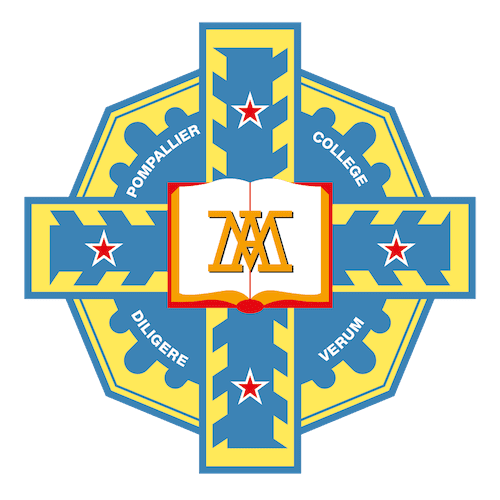A broad range of subjects is available and encouraged at each year level. Multi-level courses are also available for senior students across Years 11 to 13.
Additionally, opportunities are included in the school programme for instrumental tuition. Also included are opportunities for EOTC; school, inter-school and district sports and cultural events; and extension and enrichment opportunities.
All students in Years 7 – 10 will require a chromebook or a netbook capable of running Windows Office. No tablets or iPads please.
Further details are available on the BYOD page of our website.
Year 9
Year 9 classes have a broad and balanced curriculum. Students are taught by specialist teachers in each learning area.
All Year 9 students have six core subjects for the whole year and lesser time in other subjects. Subjects include:-
- Religious Studies *
- Health
- English *
- Language (one of French or Māori)
- Mathematics *
- Learning to Learn
- Physical Education *
- Technology
- Science *
- Visual and Performing Arts
- Social Studies *
Note: Technology is a national core curriculum area that includes modules of Food, Hard and Soft Materials and Electronics.
* Core subjects
Year 10
Specialist-taught classes continue to operate at this level. Core subjects remain compulsory and, as a result of guided choices made at the end of Year 9, students at this level begin some narrowing of their subject options.
At the end of Year 10 students will, with the guidance of their teachers, make choices that will lead to their Year 11 subjects selection.
Year 11
Studies at this level are made up of internally and externally assessed Achievement and Unit Standards which contribute to the National Certificate of Educational Achievement (NCEA) Level One.
Students study seven subjects, with Religious Studies, English, Mathematics and a Science or Geography subject being compulsory. Religious Studies and Physical Education are assessed against National Qualifications Framework (NQF) Standards. NQF Unit Standards courses are also available in other subjects.
Year 12
Studies at this level are made up of internally and externally assessed Achievement and Unit Standards which contribute to the National Certificate of Educational Achievement (NCEA) Level Two.
Students study six subjects, with Religious Studies being compulsory. Religious Studies is assessed against Achievement Standards that contribute to the NCEA award. National Qualifications Framework (NQF) Unit Standards courses are also available.
Depending on their abilities and achievements to date, Year 12 students, on the advice of their Dean, may take a combination of the subjects offered at the Year 11 and 12 levels. All of them lead to national awards.
Year 13
Studies at this level lead to assessment against Levels 3 and 4 (Scholarship) Achievement and/or Unit Standards in a maximum of six option subjects for each student.
Depending upon their achievements and abilities to date, Year 13 students may, on the advice of their Dean, take a combination of the subjects offered at the Year 11, 12 and 13 levels, as well as some National Qualifications Framework (NQF) vocational units courses.
Religious Studies is the only compulsory subject in Year 13 and is assessed against Achievement Standards on the National Qualifications Framework (NQF).
Students should be sure that they understand the requirements for entry to a New Zealand University. The College and Tertiary Education Institutions highly recommend that Year 13 students take English as a desirable basis for future studies and employment.


